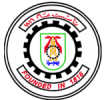MDP Program Learning Outcomes
The program has been carefully designed to prepare students for the profession of mechanical engineering through study, practice, and experience. The design of the program has been made under the department’s five study concentrations; Manufacturing and Materials, Solid Mechanics, Dynamics and Control, Design and Industrial Engineering. The program objective is to prepare graduates to have successful career in mechanical engineering with a high degree of professionalism and capabilities to apply practical knowledge, and ability to continuously develop their skills throughout their careers. Based on these objectives and looking at the adopted graduate attributes in NARS 2018, the following Program learning outcomes ( PLOs) have been developed
The graduate should work professionally in both mechanical and thermal systems areas with good understanding of standard codes, professional and ethical responsibilities
The graduate should have capabilities to apply knowledge of mathematics, science, and engineering, use the appropriate techniques, skills, and modern engineering tools to solve mechanical engineering problems
The graduate should have skills to formulate engineering problems, conduct experiments, analyze and interpret data
The graduate should develop knowledge and professional skills to design a system, component, or process to meet desired needs within realistic constraints such as economic, environmental, social, political, ethical, health and safety, manufacturability, and sustainability
The graduate should have skills to communicate effectively and function on multidisciplinary teams and can display leadership quality with capabilities of strategic decision making
The graduate should have the ability to engage in life-long learning
The graduate should have knowledge of contemporary issues to understand the impact of engineering solutions in a global, economic, environmental, and societal context
The graduate should have knowledge and ability to solve applied engineering problems related to the department five concentrations: Manufacturing and Materials, Solid Mechanics, Dynamics and Control, Design and Industrial Engineering
NARS-2018 Competencies (adopted as Graduate Attributes)
Level-A: Engineering
The Engineering Graduate must be able to
Master a wide spectrum of engineering knowledge and specialized skills and can apply acquired knowledge using theories and abstract thinking in real life situations
Apply analytic critical and systemic thinking to identify, diagnose and solve engineering problems with a wide range of complexity and variation
Behave professionally and adhere to engineering ethics and standards
Work in and lead a heterogeneous team of professionals from different engineering specialties and assume responsibility for own and team performance
Recognize his/her role in promoting the engineering field and contribute in the development of the profession and the community
Value the importance of the environment, both physical and natural, and work to promote sustainability principles
Use techniques, skills and modern engineering tools necessary for engineering practice
Assume full responsibility for own learning and self-development, engage in lifelong learning and demonstrate the capacity to engage in post- graduate and research studies;
Communicate effectively using different modes, tools and languages with various audiences; to deal with academic/professional challenges in a critical and creative manner
Demonstrate leadership qualities, business administration and entrepreneurial skills
Level-B: Mechanical
In addition to the Competencies for All Engineering Programs the BASIC MECHANICAL Engineering graduate and similar programs must be able to
Model, analyze and design physical systems applicable to the specific discipline by applying the concepts of: Thermodynamics, Heat Transfer, Fluid Mechanics, solid Mechanics, Material Processing, Material Properties, Measurements, Instrumentation, Control Theory and Systems, Mechanical Design and Analysis, Dynamics and Vibrations
Plan, manage and carry out designs of mechanical systems and machine elements using appropriate materials both traditional means and computer-aided tools and software contemporary to the mechanical engineering field
Select conventional mechanical equipment according to the required performance
Adopt suitable national and international standards and codes; and integrate legal, economic and financial aspects to: design, build, operate, inspect and maintain mechanical equipment and systems
Level-C
In addition to the competencies of all engineering and basic mechanical engineering, the Mechanical Design and Production Department must be able to have
An ability to support operational, tactical, strategic decision making and work out solutions that support complex industrial engineering problems
